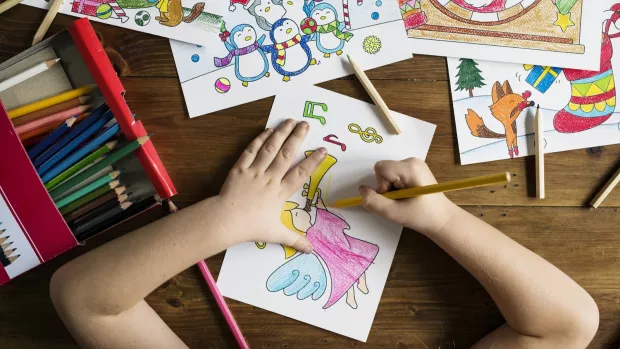
MS in children
We're used to thinking of MS as an adult condition, but children and teenagers can also develop it.
MS in children is rare, and difficult to diagnose as there are other conditions that have similar symptoms. This means that it can take some time to get a diagnosis. This may be frustrating or worrying for the whole family. The medical term often used for childhood MS is paediatric MS or paediatric onset MS (POMS).
Much of the information about MS, its symptoms and how to manage them, is the same for children as for adults. But MS in children can present its own unique challenges. Like coping with school and the effect it has on the rest of the family.
What age can you get MS?
The typical MS diagnosis age is between the ages of 20 and 40. However, there is no set age for MS onset. It can also develop in children and teenagers. It's thought that around 5-10% of people with MS experienced their first symptoms before the age of 16.
Childhood MS symptoms
Problems with memory and thinking are common symptoms of childhood MS, as are problems with movement, like poor coordination and tremor. However, MS is different for every child, just as it is different for every adult.
Find out more about MS symptoms and how to manage them
Childhood MS treatments
Some drug treatments commonly used for MS symptoms aren't licensed specifically for children. But that doesn't mean they won’t be useful or can’t be used, with careful monitoring.
Some drugs can slow down someone's MS and reduce the number of relapses they get. These treatments are known as disease modifying therapies (DMTs). Children can be prescribed DMTs.
The neurologist will discuss the options with you and your child, explaining the potential benefits and side effects. Which DMTs will be offered will partly depend on how old the child is, and how badly their MS affects them.
MS and school
Having MS can disrupt schooling. However, there is support available to help your child to continue to study.
Find out more in our factsheets:
- Education for children with MS in England, Wales and Northern Ireland.
- Education for children with MS in Scotland.
MS can cause problems with memory and thinking – known as cognition. These can be more difficult to deal with for someone who’s still in school, where they’re expected to pay attention and take in a lot of information.
Read about managing problems with memory and thinking
MS and family
MS is a condition that affects the whole family. It can affect communication, relationships, mood and daily interactions. Learning how to live with an unpredictable condition can be hard on everyone.
Children with MS may exhibit a range of emotions and behaviours like aggression, depression and anxiety as a reaction to the diagnosis. How a child reacts may also depend on the diagnosis age.
Other siblings may feel resentful or jealous of the attention that the child with MS gets, which can lead to bad behaviour.
Open discussion of the family’s concerns is important. Having some basic information about MS and how it might affect someone can help.
Getting help
- Talking to other families who are going through the same things as you can help.
- Our online forums are great places to meet people in the same boat.
- Our MS Helpline is there for anyone affected by MS, whatever their age.
- Health and social care professionals can provide support to your child with MS, as well as the rest of the family
- Breaks and holidays are a valuable opportunity for you and your child to recharge your batteries.
- Having MS in the family can have a financial impact. There may be benefits you can claim on behalf of your child.




